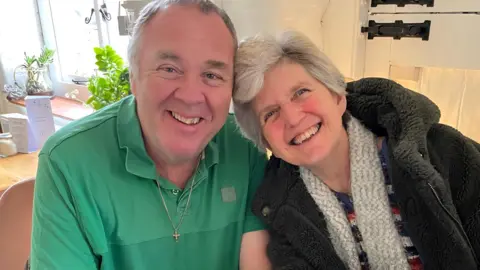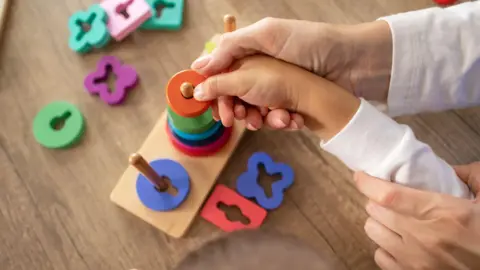Foster children 'should feel loved and cared for'
 Dorset Council
Dorset CouncilA couple who have fostered more than 60 children have said the most important thing is making sure each child "feels cared for and loved."
Sue and Des, who specialise in caring for children with special educational needs and disabilities (SEND), have also responded to emergency calls - sometimes welcoming a child into their home in Weymouth, Dorset, with just a few hours' notice.
Sue believes the key to being a good foster parent is understanding that every child is unique.
You don't need to have it all figured out," she said. "You just want them to be happy, to feel cared for and loved, and to be safe."
With a background in working with SEND children, the couple began fostering in Wales in 1988, initially offering short breaks to families of children with disabilities.
After moving to Weymouth, they transitioned to full-time fostering, raising foster children alongside their three biological and one adoptive child.
 Getty Images
Getty ImagesThey adapted their home to meet a wide range of needs.
"Some need hoists and ramps, others are climbing stair gates and trying to put things down the toilet," said Sue.
"You must adapt your care to each child's needs."
While fostering comes with challenges, Sue said the rewards are profound - like witnessing a non-verbal child use a communication aid for the first time.
"She could finally tell us what she wanted," she said.
"That was huge."
Sue also reflected on how fostering has shaped their own children. One is now a social worker, another is launching a sports charity for children with additional needs, and a third is training as a speech and language therapist.
Dorset Council is encouraging anyone interested in becoming a foster carer to get in touch.
You can follow BBC Dorset on Facebook, X (Twitter), or Instagram.
